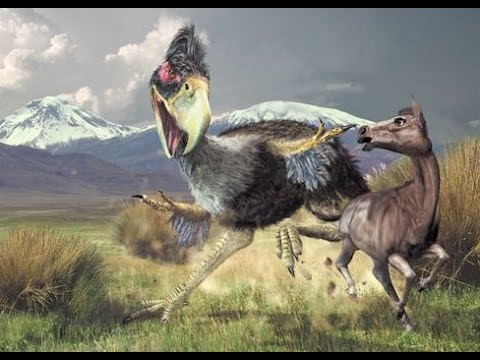(单词翻译:单击)
Indeed, with the world dark and hostile, it was a perfect time to be small, warm-blooded, nocturnal, flexible in diet, and cautious by nature — the very qualities that distinguished our mammalian forebears. Had our evolution been more advanced, we would probably have been wiped out. Instead, mammals found themselves in a world to which they were as well suited as anything alive.
当世界一片滚黑、布满危险的时候,对于出没于夜间、不挑食物、生性谨慎的小恒温动物来说,它们确实是适得其所。这一些正是我们的哺乳动物祖先所具备的高招。假如我们进化得更加先进,我们很可能已经不复存在。然而,与任何活着的生物一样,哺乳动物觉得自己非常适应那个环境。
However, it wasn't as if mammals swarmed forward to fill every niche. "Evolution may abhor a vacuum," wrote the paleobiologist Steven M. Stanley, "but it often takes a long time to fill it." For perhaps as many as ten million years mammals remained cautiously small. In the early Tertiary, if you were the size of a bobcat you could be king.
不过,情况似乎不像是哺乳动物一哄而上去抢占每一块地盘。“进化可能讨厌出现空缺,”古生物学家斯蒂芬·M·斯坦利写道,“但空缺往往要花长时间才能填补。”在可能长达l000万年的时间里,哺乳动物小心翼翼,保持很小的体形。在第三纪,要是你有红猫的个儿那么大,你就可以称王称霸了。
But once they got going, mammals expanded prodigiously — sometimes to an almost preposterous degree. For a time, there were guinea pigs the size of rhinos and rhinos the size of a two-story house. Wherever there was a vacancy in the predatory chain, mammals rose (often literally) to fill it. Early members of the raccoon family migrated to South America, discovered a vacancy, and evolved into creatures the size and ferocity of bears. Birds, too, prospered disproportionately. For millions of years, a gigantic, flightless, carnivorous bird called Titanis was possibly the most ferocious creature in North America. Certainly it was the most daunting bird that ever lived.
但是,一旦起步,哺乳动物就大大地增大了自己的个儿——有时候大到了荒唐的地步。一时之间,出现了犀牛大的豚鼠和二层楼房大的犀牛。食肉动物链里哪里有空缺,哺乳动物马上挺身而出去填补。早年的浣熊家族成员迁移到南美,发现了一个空缺,便演变成熊一般大小和凶猛的动物。鸟类的样子也长得大得失去了比例。有几百万年时间,一种名叫“巨鸟”的不会飞的食肉大鸟可能是北美最凶猛的动物。它肯定是存在过的最威武的鸟。


